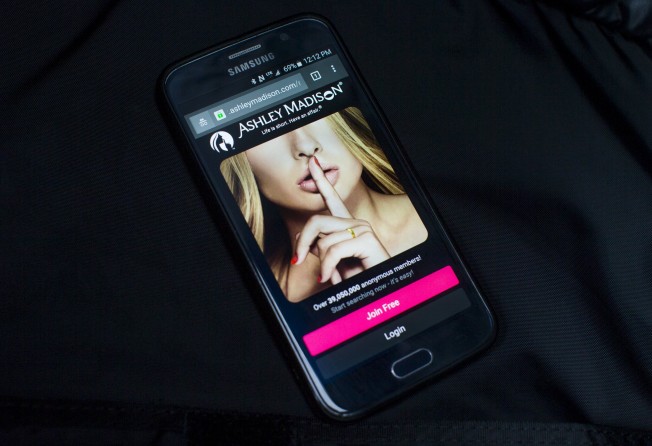Ashley Madison and the business model of selling adultery

The Ashley Madison data breach gives me a rare opportunity to cite one of my favourite scientific experiments.
Researchers made a papier-mâché replica of a rooster, and tossed it into a hen house. According to the evolutionary psychologist Steven Pinker, the hens sniffed and walked away, their little beaks in the air.
However when the researchers introduced a female replica to the roosters, they all made vigorous and repeated attempts to woo this paper hen. At one point the researchers, with typical science-lab humour, glued a few feathers on a stick- -- and sure enough, the roosters enthusiastically tried their luck.
This is an illustration of two principles. One is that there are differences between the sexes. The other is that Hope Springs Eternal.
The principle of “Hope Springs Eternal” has long supported sales in products ranging from lottery tickets to baldness cures to anti-ageing compounds.
One has to wonder if the Ashley Madison adultery exchange website falls into this category of business model.
How often did the men signing up for the service ever meet real women who wanted to have a discreet marital affair, no strings attached?
The numbers appear to look grim. As journalists and voyeurs pour over the names of purported clients leaked by hackers - it is more than obvious that there are a lot more “Eds” than “Edwinas.”
Indeed, past reports say males make up some 70 per cent of Ashley Madison’s 36 million customers - but this in fact is likely a padded percentage. It is not clear how many of the “female clients” are genuinely fellow travellers in the adultery market place.
Some female users are likely just prostitutes trawling new waters in the digital era; several “reviewers” of the site complained as much.
However, a certain percentage of ostensible female clientele may just be digital deceptions. A Brazilian ex-employee of Ashley Madison is suing the firm for a wrist injury she received, according to the complaint, while typing in more than 1,000 fake female profiles for the Portuguese-language site alone. And that was just in a week.
Online matchmaking services are an increasingly influential vehicle for couples to meet dates and potential spouses. The numbers work – despite the stereotype of "commitment-phobe" men, many polls show that a similar majority of young men and women cite marriage as a goal.
Once married, however, men are more likely than women to cheat on their spouses; perhaps twice as likely according to some surveys.
This presents companies like Ashley Madison with a business model problem – more buyers than sellers.
A couple of years ago, a GQ reporter joined the Ashley Madison service to interview the female clientele. One woman he met was indeed the real thing – a long-time wife and deeply committed cheater. This eager client says she has so many choices – she is constantly bombarded with offers – that she ignores 90 per cent of the solicitations.
So how does Ashley Madison manage to attract and maintain male clientele despite the grim odds of successful match-ups?
It’s possible that a good chunk of the business is indeed just prostitution gussied up as adultery. “According to several users, prostitutes are really the only females they'd consistently meet on Ashley Madison,” blogged Robert Graham, a cybersecurity expert who has researched the headline-garnering data breach.
The other likelihood is that male users just don’t do the math. Ashley Madison helps create an illusion that the pool of potential female adultery partners is abundant. As well as seeding the website with fake profiles, other tactics here would include using eager-looking females in their advertising campaigns.
The prospect of female cheater online lures in users in the same way a million dollar payout lures lottery ticket buyers. Few may win - but all can hope.
A lottery is often said to be a “stupid tax” because anyone who can accept the statistical reality, simply would not play.
Those now caught up in the Ashley Madison data breach must be feeling like they paid a double stupidity tax. Surely, many of the men who paid fees and spent countless hours viewing profiles and messaging potential partners never “got lucky,” as the saying goes.
That somehow must make their exposure extra bitter.
Cathy Holcombe is a Hong Kong-based financial writer